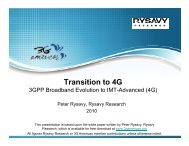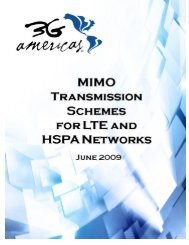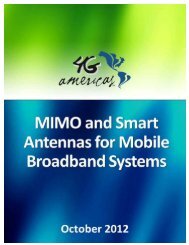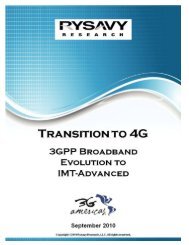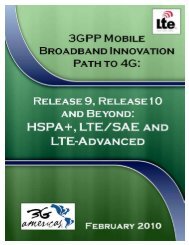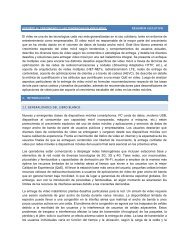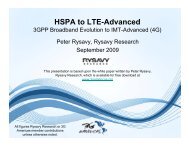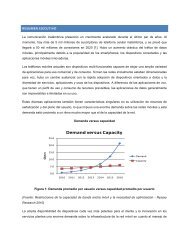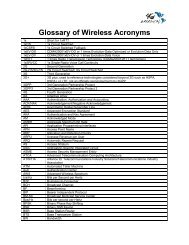You also want an ePaper? Increase the reach of your titles
YUMPU automatically turns print PDFs into web optimized ePapers that Google loves.
7.3.9 IP‐SHORT‐MESSAGE‐GATEWAY ENHANCEMENTS FOR CPM‐SMS INTERWORKING<br />
Among other services, CPM service offers both a pager mode messaging user experience similar to<br />
instant messaging, as well as a session-based mode messaging user experience. CPM has requirements<br />
to support interworking between a CPM user and an SMS user using both pager mode messaging and<br />
session-based messaging.<br />
Up to Rel-9, the IP-SM-GW supports the pager mode messaging interworking between instant messaging<br />
users and SMS users, but not the session-based mode.<br />
In Rel-10, stages 1, 2 and 3 work has been done to improve the IP-SM-GW for supporting the sessionbased<br />
messaging interworking between CPM users and SMS users. Stage 2 built upon the current<br />
principles and architecture of the IP-SM-GW, and enabled the session-based messaging interworking<br />
between SMS users and session-based messaging users, with the aspects:<br />
� Establishment and release of a messaging session with an SMS user (the establishment may be<br />
subject to the consent of the SMS user)<br />
� Delivery of session-based message to an SMS user<br />
o Invite a SMS user to a session-based group conversation with appropriate instructions on<br />
how to join, exit and message exchange<br />
o Give the service provider the opportunity to control the representation of messaging sessions<br />
(both for peer-to-peer and group sessions) towards the SMS user, with a number of options:<br />
1. Let the network accept the messaging session on behalf of the SMS user without seeking<br />
consent with the SMS user and subsequently relay the messages sent within the context<br />
of the messaging session.<br />
2. Let the network deny the creation of (certain types) of messaging sessions on behalf of<br />
the SMS user, without seeking consent with the SMS user.<br />
3. Let the network ask consent with the SMS user before accepting the messaging session,<br />
and let the SMS user determine whether the messaging session needs to be accepted.<br />
� Notification of delivery status<br />
There is no impact to the current SMPP protocol. Stage 2 TR 23.824 captured the architecture and 3GPP<br />
23.204, 29.311 were updated.<br />
7.3.10 LAWFUL INTERCEPTION LI10 IN RELEASE 10<br />
This Rel-10 feature work was at 70 percent completion as of January 2011.<br />
SA WG3-LI studied all relevant function and services of Rel-10 to fulfill the national requirements on<br />
interception.<br />
LI Considerations are necessary at least for the following topics:<br />
� CAT (Customer Alerting Tones) & CRS (Customized Ringing Signal)<br />
www.4gamericas.org February 2011 Page 77



